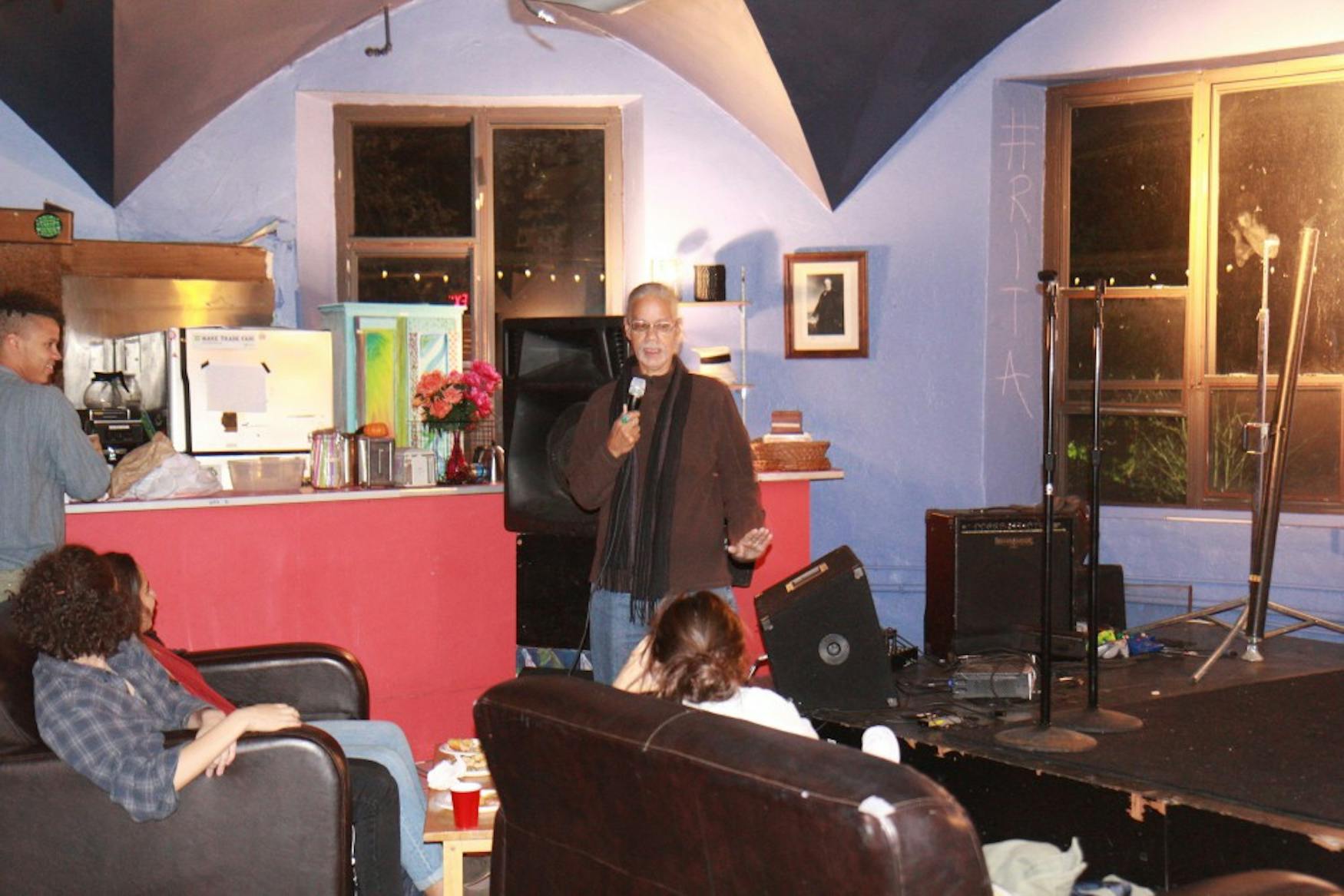Gonzalez notes influences on Hispanic and Latino identity
Nationally renowned storyteller, poet and multicultural motivational speaker Bobby Gonzalez was the featured guest at AHORA’s, Brandeis’s Hispanic and Latino Organization, coffee talk on Hispanic identity, coordinated by AHORA Event Coordinator Alana Alves ’17. In celebration of the conclusion of Hispanic Heritage Month, Gonzalez took the floor to discuss the importance of recognizing Hispanic identity as a blend of cultures and heritage that should be inclusive for everyone.
Gonzalez has toured the country to speak to college students on awareness about other cultures. He has performed storytelling at venues such as Carnegie Hall, the Museum of Television and Radio and the Detroit Institute of Art. As a poet, he has taken the stage at the National Museum of the American Indian, the University of North Dakota and the Nuyorican Poets Café in New York. Gonzalez has several publications, including his most recent book of poetry, which is titled “Taíno Zen: Poetry From The South Bronx Reservation.”
Gonzalez began by sharing to the crowd of students that this was his third visit to Brandeis. He inquired as to the Latino heritage of the audience members and then described his own heritage as a Puerto Rican and a Taíno — a Native American population that historically resided on the islands of Cuba, Hispaniola, Puerto Rico and Jamaica. His parents migrated to the United States from Puerto Rico in the 1940s. “They came here with no money, knew no English and had almost no formal education … and they put all three of us through college,” he said. “I’ve lectured at Yale University, University of Mississippi … not bad for a kid who grew up in the projects of the South Bronx.”
He described that he and others from his childhood neighborhood who were able to get a college education and leave behind the less fortunate parts of their youth are “an example of the American dream coming true. There’s a dark side to it, but a lot of us do break through.”
Gonzalez explained that Hispanic people “are an ethnic and racial mosaic; we have European ancestry, African, Indigenous, Asian, Arab, Jewish.” He explained that “when Columbus sailed the ocean blue, he wasn’t the only one leaving Spain,” as Queen Isabella and King Ferdinand were in the process of forcing out all non-Christians. Furthermore, Gonzalez noted that it is not just in the Americas where one finds this blend of heritage and ancestry.
Unfortunately, he noted, time and fear of discrimination have worn away the memory of this Hispanic identity. Gonzalez cited the results of a recent DNA testing in New Mexico: “A lot of people who thought they were just Mexican-American were actually Jewish … because people came [to the Americas] and had to hide that they were Jewish. … After several generations, [their families] forgot [that they were Jewish].”
Gonzalez continued along the same theme, discussing African influence on Latino culture and identity. “Latinos, we’re a mixture of everything, and I’m very proud of my African heritage,” he said. But, “if you’re Latino, it’s very difficult to see that African-American heritage reflected in Spanish-language TV. If you watch ‘The Novellas,’ [a Spanish-language television program] you never see black Latinos, except if she’s the maid … or the husband’s woman-on-the-side.”
The problem of misrepresentation, he continued, as well as the absence of recognition of black heritage in television, can be seen in other programs as well. “You have these shows like ‘Jerry Springer’ … you have this blonde woman holding the microphone — she’s always blonde — and on the stage are people of color, yelling at each other and beating each other up. And so far, we have never seen a black woman holding the microphone and a bunch of blonde people on stage beating each other up.” Gonzalez told the audience that he wants to witness a change in the racist and discriminatory manner of such television shows. “That’s why we need young people like you to get in there, [and] write and produce shows … we need young Latinos to break ground.”
Gonzalez finished his discussion by driving home the point of the importance of diversity.
“It’s very important for us to accept diversity in others, and in ourselves,” he said, concluding with the statement: “it seems to be a human trait to create an ‘other.’” He then invited students to come up and share their own thoughts. Clayre Benzadon ’17 shared an original poem titled “Our Chocolate Moonshine.” Her reading was followed by Pamela Escano’s ’17 original piece of poetry.



Please note All comments are eligible for publication in The Justice.